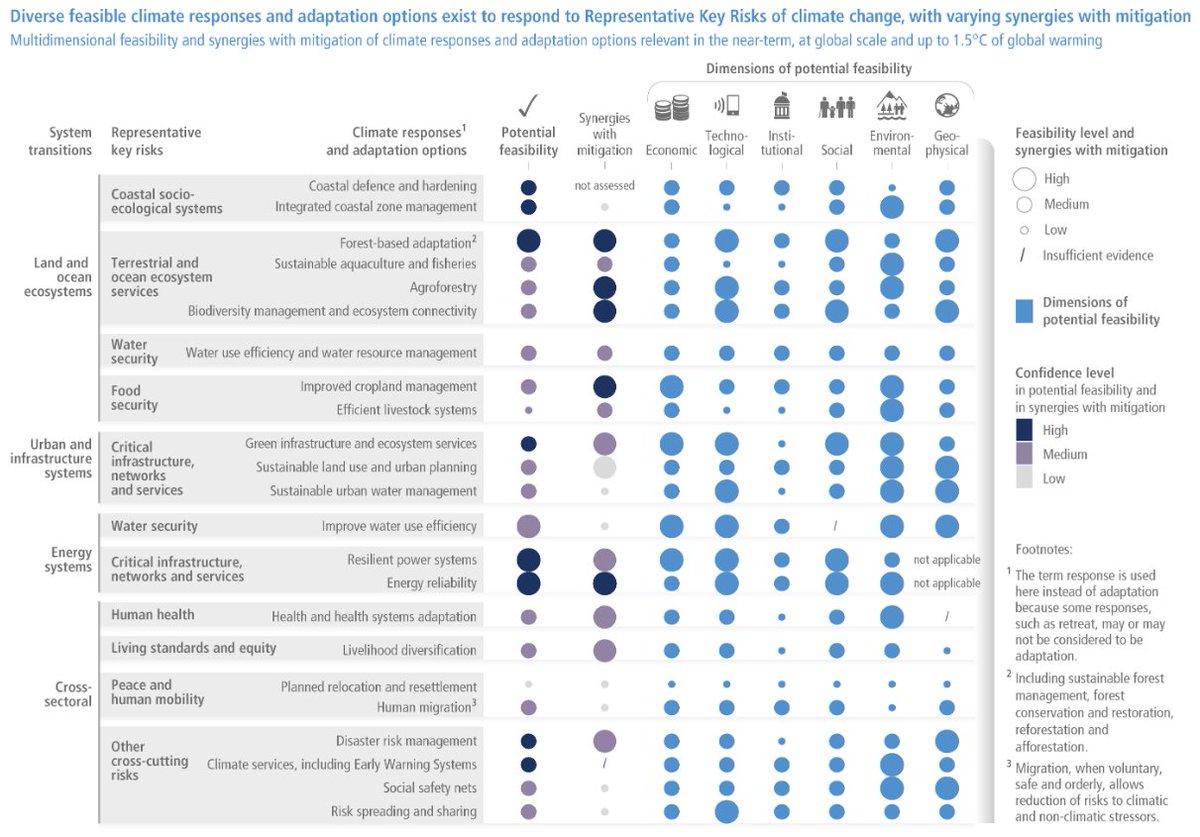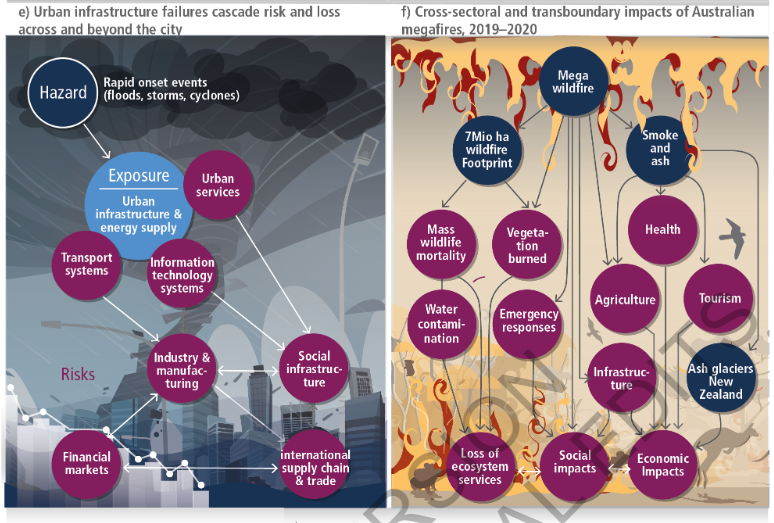
The IPCC Climate Change 2022: Impacts, Adaptation and Vulnerability was released today. I'm going to go through the executive summary and post some "highlights". #IPCC #IPCCReport
report.ipcc.ch/ar6wg2/pdf/IPC… 2/
report.ipcc.ch/ar6wg2/pdf/IPC… 2/
- #Dengue risk will increase with longer seasons and a wider geographic distribution in #Asia, #Europe, Central and South America and sub-Saharan #Africa, potentially putting additional billions of people at risk by the end of the century
- A billion people projected to be at risk from coastal-specific climate hazards in the mid-term under all scenarios, including in Small Islands. #ClimateCrisis #ClimateEmergency
Complex, Compound and Cascading Risk
- Climate change impacts & risks are becoming increasingly complex and more difficult to manage.
- Multiple climate hazards will occur simultaneously
- compounding overall risk & risks cascading across sectors a& regions.
- Climate change impacts & risks are becoming increasingly complex and more difficult to manage.
- Multiple climate hazards will occur simultaneously
- compounding overall risk & risks cascading across sectors a& regions.
Above 1.5°C global warming increasing concurrent climate extremes will increase risk of simultaneous crop losses of maize in major food-producing regions, with this risk increasing further with higher global warming levels
cascading risks also trigger tipping points in sensitive ecosystems and in significantly and rapidly changing social-ecological systems impacted by ice melt, permafrost thaw and changing hydrology in polar regions
In Amazonia, and in some mountain regions, cascading impacts from climatic (e.g., heat) and non-climatic stressors (e.g., land use change) will result in irreversible and severe losses of ecosystem services and biodiversity at 2°C global warming level and beyond
Unavoidable #sealevelrise will bring cascading & compounding impacts ==losses of coastal ecosystems & ecosystem services, groundwater salinization, & flooding that cascade into risks to livelihoods, settlements, health, well-being, food & water security, and cultural values
#maladaptation Risks
- afforestation of naturally unforested land, or poorly implemented bioenergy, with or without carbon capture and storage
- Solar Radiation Management #SRM
- afforestation of naturally unforested land, or poorly implemented bioenergy, with or without carbon capture and storage
- Solar Radiation Management #SRM
If global warming exceeds 1.5°C (even temporarily). Human and natural systems will face additional severe risks. some will be irreversible, even if global warming is reduced
Irreversible impacts on certain #ecosystems with low resilience, such as polar, mountain, and coastal ecosystems, impacted by ice-sheet, #glacier melt, or by accelerating and higher committed sea level rise
#wildfires, #massmortality of trees, drying of #peatlands, and thawing of #permafrost, weakening natural land carbon sinks and increasing releases of greenhouse gases are already observed and are projected to increase
The resulting contribution to a potential amplification of global warming indicates that a return to a given global warming level or below would be more challenging. #Feedbackloops #tippingpoint #climatecrisis #Collapse
Limits to Adaptation #LimitsToAdaptation
- Soft limits to some human adaptation have been reached
- Hard limits to adaptation have been reached in some ecosystems
- Soft limits to some human adaptation have been reached
- Hard limits to adaptation have been reached in some ecosystems
There is a rapidly narrowing window of opportunity to enable climate-resilient development. #resilience 

Dominant models of energy intensive & market-led urbanisation, insufficient & misaligned finance & a predominant focus on grey infrastructure in the absence of integration with ecological & social approaches, risks missing opportunities for adaptation & locking in maladaptation
Poor land use planning and siloed approaches to health, ecological and social planning also exacerbates, vulnerability in already marginalised communities
Maintaining the #resilience of #biodiversity and #ecosystem services at a global scale depends on effective and equitable conservation of approximately 30% to 50% of Earth’s land, freshwater and ocean areas, including currently near-natural ecosystems
The cumulative scientific evidence is unequivocal: #Climatechange is a threat to human well-being and planetary health.
Any further delay in concerted anticipatory global action on #adaptation and #mitigation will miss a brief and rapidly closing window of opportunity to secure a liveable and #sustainable future for all. #ClimateReport #ClimateCrisis #Collapse
Join us in witnessing the most interesting times in human history; analyze studies, discuss #ClimateChange and #Ecosystem issues, and meet awesome people: discord.gg/JpB5EW92vN #Collapse #ClimateReport #ClimateCrisis
• • •
Missing some Tweet in this thread? You can try to
force a refresh











